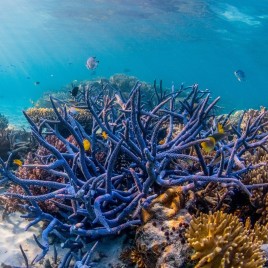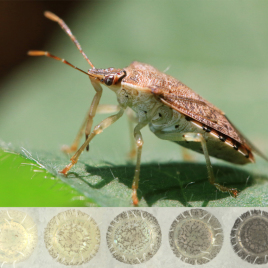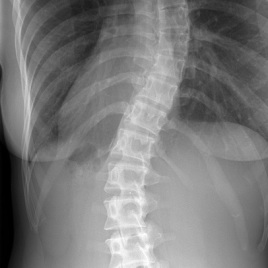Natural Sciences and Engineering Research Council of Canada The winners of the 2016 NSERC prizes celebrating exceptional research in Canada were announced yesterday they include: Dr. Victoria M. Kaspi, McGill University, is the winner of the Gerhard Herzberg Canada Gold Medal for Science and Engineering. Kapsi studies neutron stars and her research sheds light […]
Tag: Québec

Marine protected areas failing to protect history
Marine protected areas (MPAs) are failing to protect the evolutionary diversity of fish and corals, according to a new study. The researchers conclude that over 7,000 million years of the evolutionary history of corals and 3,586 million years of fish evolution is not protected. Researchers studied 450 species of fish, which represent important components of marine biodiversity, and hundreds of species of coral, and calculated how […]
Quebec’s TB troubles
Québec’s unusually high rate of tuberculosis (TB) is most likely due to the local environment and cultural practices, rather than a particularly potent strain of TB, according to researchers. Québec has an incidence rate 50 times higher than the Canadian average. Researchers performed whole-genome sequencing on 163 TB samples from 11 geographically isolated villages in […]
Low vitamin D levels associated with an increased risk of MS
Low vitamin D levels are associated with an increased risk of multiple sclerosis (MS) in European populations, however whether vitamin D can delay or prevent the onset of MS requires further investigation, according to researchers. The authors used data from the International Multiple Sclerosis Genetics Consortium study, which involves 14,498 people with multiple sclerosis and […]

The secrets of stink bugs: A new chemical compound and selective egg colouration
Stink bugs, Podisus maculiventris, are able to change the colour of the eggs they lay to better protect them from UV radiation, according to new findings. The researchers expected the colour variation to come from differing levels of melanin, however they found a new compound responsible for the pigmentation. While stink bugs are the first […]

Female black bears eat berries, males eat ants
Male and female black bears do not share the same diet, according to new findings. A research using GPS telemetry and scat analyses found that black bears’ diet depends on their sex and, for females, on their reproductive status. In the same habitats, “females with cubs-of-the-year tended to…feed on bunchberry, whereas females with yearling foraged […]
Could maple syrup help cut use of antibiotics?
An extract of maple syrup makes certain dangerous bacteria, such as E. coli, more susceptible to antibiotics, a McGill study has found. The researchers found maple syrup is a rich source of phenolic compounds which are capable of repressing a number of bacterial genes linked to antibiotic resistance. While this is just a first step, […]
Human activity linked to blue-green algaes bloom in lakes since 1945
Human activity is the primary cause of blue-green algae bloom in lakes in Canada and across the world since 1945, a new study shows. Researchers have found that blooms of one type of harmful algae, called cyanobacteria or blue-green algae, have increased disproportionately over the past two centuries relative to other species, with the greatest […]
Quitting is good for the brain
People who quit smoking may reduce or halt the thinning of the brain’s cortex. A new study has found that the cortex of the brain, which plays a key role in memory, attention, thought and language, is known to thin with age and this feature is used as one of the biological markers for cognitive […]

Gene causing common scoliosis identified
Researchers have identified the first gene causing idiopathic scoliosis, the most common type of spinal deformity. They identified 11 family members of a French family that were carriers of a rare variant of the gene, called POC5, and then used zebrafish to confirm that this variant really cause spinal deformity. This study is the first […]
How eating salt reprograms the brain
Researchers have described a mechanism by which high salt intake can lead to higher blood pressure. Using rats, they found that salt causes biochemical changes in neurons that release vasopressin, a hormone that increases arterial blood pressure. Salt disables the natural safety mechanism that prevents vasopressin from being released in the blood, thus allowing blood […]
For sleeping children, quality is more important than quantity
For young children, the quality of sleep may be more important than the duration of sleep when it comes it academic performance, according to a new study. The researchers found that a high percentage of time in bed spent sleeping influenced positively a child’s grades in math, English, and French as a second language, while […]
No apparent correlation between HPV vaccine and risky sexual behaviour
Vaccinating teenage girls against the human papilloma virus (HPV) does not appear to increase risky sexual behaviour. There was concern that receiving the vaccination would cause an increase in such behaviour, however this study shows the concern is unfounded and should not prevent vaccinating girls at a young age. The study followed over 260,000 girls […]

Obesity may shorten life expectancy by 8 years
Individuals who are obese or overweight may be shortening their lives by up to eight years, according to a new study. In addition to this new decrease in life expectancy, obese and overweight individuals have a higher chance of developing diabetes or cardiovascular disease earlier in life. The study found that individuals who are overweight to […]
Chickadees can resist cold down to -10°C
Black-capped chickadees’ ability to resist cold temperatures by increasing their own heat output maxes out at about -10 degrees Celsius, according to a new study. After that point, they seek shelter from the cold rather than remain outside dealing with it. The study is the first to suggest that birds have a limit on their […]

Thin coating could boost solar efficiency
A thin layer of metal oxides could significantly boost the efficiency of solar cells, according to a new study. Researchers have been working on a material made of the elements bismuth, iron, chromium and oxygen, which absorbs solar radiation. They discovered that by changing the temperature and pressure at which they deposit thin films of […]